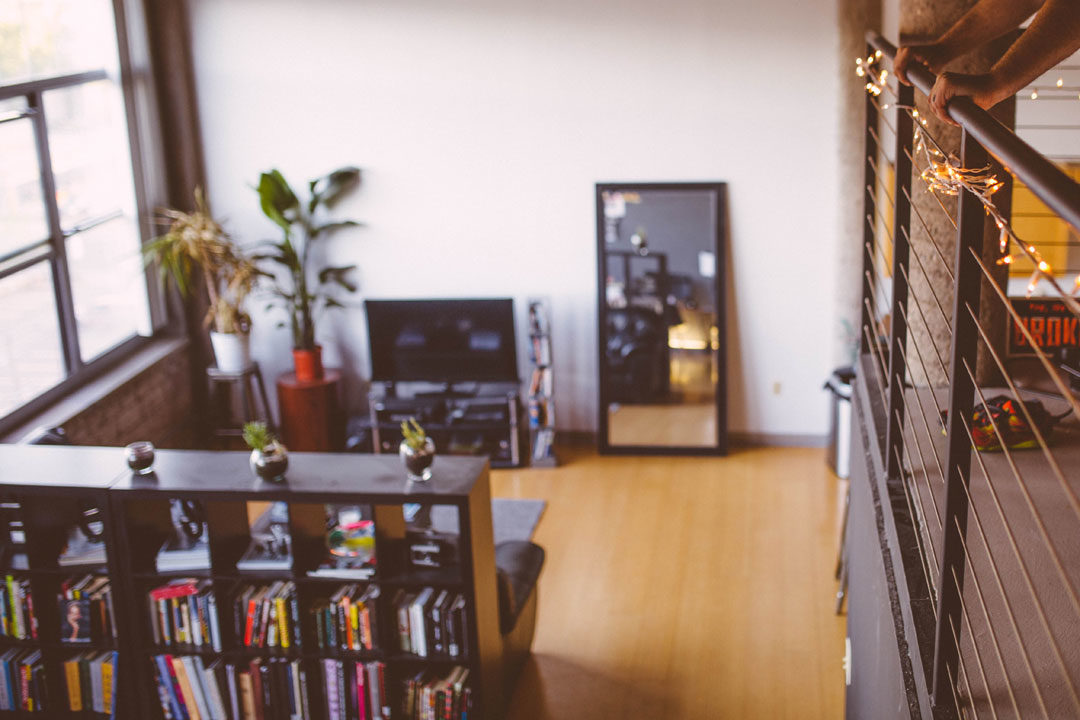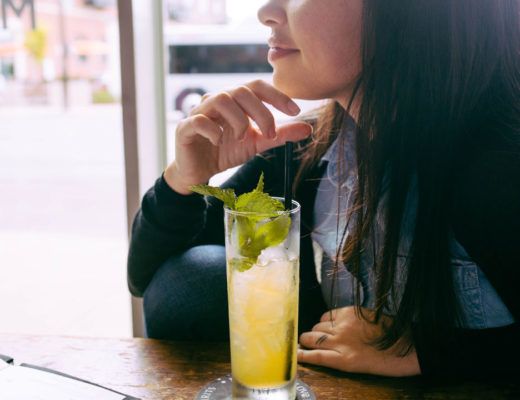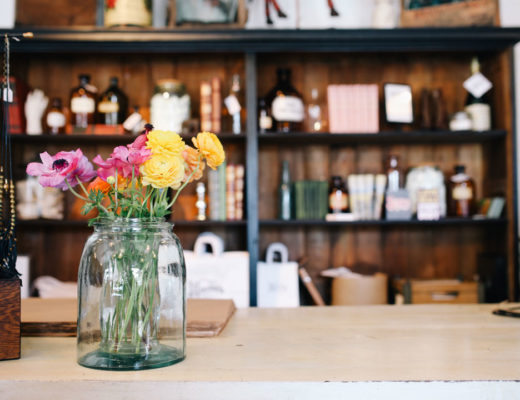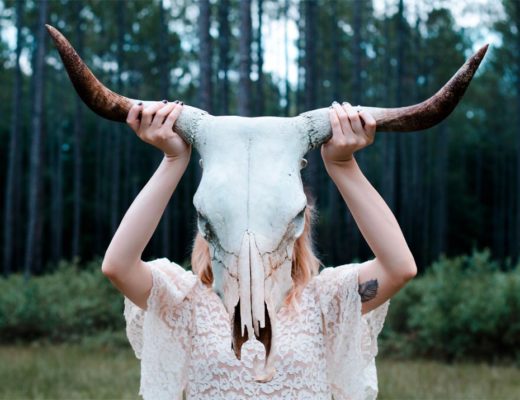Spending a day at Zarpara Vineyard with owners Mark Jorve and Rhona MacMillan is like hanging out with your friends at their home, except that their home happens to be a fully-operating vineyard, winery and tasting room.
“We’re a working, two-person vineyard. It’s not a big operation. What you see is what you get – an authentic experience. This is us,” said Rhona.
While it’s usually just the two of them, during harvest they welcome volunteers to experience a day in the wine life in exchange for help with the heavy workload typical of the season. On a morning this past August, I arrived to help with that day’s Viognier pick and was running late. I had underestimated the time it would take to drive the 15 miles from downtown Willcox, Arizona to Zarpara, which lies in area known as the Willcox Bench.
Broad-shouldered with gray hair, kind eyes and wearing a Scotland flag-adorned shirt, Mark was the first person I met as I turned the corner from the main road onto a long stretch between blocks of vines. With a bright blue sky that stretched for miles and the surrounding majestic Dos Cabezas Mountains, it felt like a world all its own.
“Hi, I’m Kirstin. It’s great to be here. Sorry I’m late,” I said.
“Oh, it’s no problem,” he said, smiling and turning to look over his shoulder at a woman walking his way. Covered from head to toe in pants, a long-sleeved shirt, a wide-brimmed hat and sunglasses, I didn’t recognize her straight away.
“This is Kirstin,” he said.
“Hi, I’m Rhona. It’s nice to meet you!” she said in her native Scottish accent, followed by the type of smile that lights up a room. “Thanks for coming out today. I think we’ll have you start down this way.”
Not much over five feet, she moved quickly as I followed her down a row of vines dotted with volunteers and several blue and orange five-gallon buckets.
“Just put the grapes in the bucket and when it’s filled up, move it under the vines so it’s out of the sun.”
The morning moved along easily and was representative of them both – fun and laid back with plenty of jokes flying around. At one point we had filled the buckets faster than they were emptied and couldn’t do much more than wait for Mark to bring back more. Approaching in the tractor, he stopped, threw his arms out and said dead-panned, “What is everyone standing around for?” After staring at us for a few seconds, a big grin crossed his face. “Just kidding,” he said laughing.
Despite the shortage of buckets, everything ran so smoothly that you’d never know it wasn’t long ago that Rhona and Mark reported to offices in the corporate world rather than to six acres of vines. Working a vineyard had never been in their plans. They didn’t begin their careers studying viticulture or enology and neither came from a winemaking family. How they ended up there resulted from a much bigger quest, one that is reflected in the name they chose, Zarpara, which is Spanish for “set sail.”
“It’s all the security of having a job and letting that life go,” explained Mark. “I know it sounds risky but for us it had become a bigger risk not to.”
Their story is one that many people spend their lifetimes dreaming about, but don’t end up taking action on. It feels out of reach or fear gets in the way. As Rhona put it, “So many people come in the tasting room, hear our story and say, ‘Wow, I wish I could do that.’” Because of this, they’ve had to get used to being more of the focus than the wine. For the self-described introverts, it’s taken some getting used to. They’re not much for being the center of attention.
They’re still happy to share their story though, which began around 2005 while they were living in Phoenix.
Pushing Off the Dock
After several years working in software development and business analysis, Mark and Rhona had reached a point where their steady paychecks were not providing much more than financial security. After another big letdown at work, Mark was reaching the end of his sanity.
“I know a lot of people get satisfaction from work, but I just wasn’t. I had to do something else with my life. It was all about living. If we didn’t do something like this, then I was going to stop living, really; just turn into a zombie going to work everyday.”
They also felt a lack of challenge in their lives and the fulfillment that results from overcoming it.
“Before this, the biggest question we had was what hike to do on Saturday morning and where to eat that evening. We found ourselves trying to come up with things to do that would provide a challenge, like remodeling the backyard,” he explained.
Rhona shared the same sentiment but was struggling with the risk associated with leaving two steady paychecks and a mortgaged house. Eventually she realized that if they were going to make a change, time was of the essence.
“Many folks start in this industry in their thirties with lots of energy. We’re in our fifties, so we’re not spring chickens. At some point we just had to do it. It was a now or never situation.”
As they began dabbling in the idea of owning their own business, it was less about what it was and more about how it made them feel at the end of each day. Their focus turned to what they wanted to experience: the challenge and sense of accomplishment that come from living by one’s own wits, the connection to the land and nature that originates from a life outdoors and an opportunity to spend each day together, working towards a common goal.
They found that farming fit all of their requirements and began researching small-scale options within the industry. They were considering olive groves when they thought to look into vineyard farming. Wine was something they enjoyed already, so it might be a good fit. While olive groves take five years to produce a first harvest, vineyards take only three. They could have a wine out in six months to a year after that. The possibility of a fast start up was exciting, and they realized that by purchasing an existing vineyard, they could begin making wine even sooner. They settled on vineyards and began their search.
After looking in California, Washington and Europe with no luck, they discovered vineyards in Arizona. Not only would they be able to remain in their home state but land was relatively inexpensive. No existing vineyards were for sale, so the decision was made to purchase bare land and plant themselves. They settled on a 20-acre plot, taking the title in October of 2009.
Traveling each weekend from Phoenix to Willcox, in six short months they laid out the vine blocks, prepared the land, marked out the individual vine rows, installed trellising, drilled a well and planted in April of 2010 with the help of family and friends. They chose
a mixture of varietals they loved with what grew well in the area. Even though Spanish wines are their favorite, they avoided becoming too specialized and cast their net over the Mediterranean, planting Sauvignon Blanc, Viognier, Cabernet Sauvignon, Sangiovese, Tempranillo, Monastrell (aka Mourvedre) and Syrah.
From that moment, they became the designers of a life they truly loved, immersing themselves in every detail. They had pushed off the dock, no longer securely tied to land. They had set sail.
Choppy Waters
Judging from one of their favorite nicknames for the vineyard, “constant rework,” getting everything up and running in six months was just the first of many challenges. As we walked in from picking that morning, Mark introduced me to Steve, a good friend who has helped them with trellising and vine work from the beginning. He laughed as Mark recounted one of their first challenges.
“Steve helped us put nearly 2,000 T-posts in the vine rows, which the three of us pounded in by hand with manual post drivers. I had to call and tell him that the markers for 400 of those posts were in the wrong place, so they had to be pulled up and moved.”
Later that year came another sizable challenge during the vineyard’s first winter, one of the coldest Arizona had seen for awhile. Low temperatures hovered close to zero degrees Fahrenheit and the highs rarely made it out of the teens. A manager of a nearby vineyard stopped by to see how they were doing.
“He started cutting into the vines, beginning with the cordons, moving down the trunk and to the ground,” recalled Mark.
“‘Do you hear it?’ he said. ‘Dead wood sounds different than live wood.’”
“Dead. Next vine, dead. The whole thing, dead. 5,000 vines gone.”
They pruned each vine back in hopes they would return in the Spring. Small buds began popping out, offering some semblance of life, and as they entered May, the vines erupted. The roots had produced multiple trunks, and they now faced the new challenge of too much growth.
While they lost 60% of their Tempranillo, 10%-20% of other varietals and all of the Cabernet Sauvignon, they kept moving forward. Today those 5,000 vines have since returned or been replanted.
“We’ve had to evolve and adapt. We’ve made mistakes which have meant a lot of rework and time, but in the end it’s not wasted; just an annoyance that’s led to lessons learned,” said Mark.
Staying the Course
We all moved to the winery for the second part of the day, which was around a five minute walk from the vineyards. We’d be helping get the Viognier ready to crush, but first the grapes had to be weighed. Rhona scribbled measurements in a notebook as we all took turns loading buckets on the scale and then dumping them into the large bins in the cooler.
“Two and a half tons total,” Rhona said as the last bucket was removed from the scale. “What did we estimate?”
“Two and half tons,” said Mark.
After a brief pause, “Well, we’re damn good!” she said laughing.
Even though she said it in jest, they’ve come a long way, especially considering they had no background in the industry. In 2011 they purchased a camper they named the Rolling Love Machine and lived nearby as they began construction on a 1600 square foot building that now houses the tasting room, winery and their living quarters. While most of the rooms are closed off, their kitchen is part of the public tasting room.
“We’re two of only a handful of owners that run the tasting room, so people come in and after five or ten minutes say, ‘Do you own the place? Wait, you live here?’” Rhona said laughing.
On the back end of the building is the winery, which is small at only 800 square feet, but that was the intention.
“I like having a small winery without the automation because to me that’s so close to the wine and grapes,” explained Mark. “It’s almost a connection to the old world, where people have been around for centuries working in the vineyard and making wine. I wanted something very traditional, where we weren’t just pushing buttons.”
“It’s really a connection,” added Rhona. “Some other things just feel like a business. This for us had to be more than just a business. It really was a lifestyle change.”
They have the capacity to produce 1,000 cases, and this year marks the first they’ll make all the wine themselves, a skill they acquired through classes, books, research and the help of other winemakers in the community. They’re quick to point out that their success is due in large part to all the guidance they’ve been given.
“We’ve received so much help from great people. It’s very much a different community. You have to look out for one another,” said Rhona.
Continuing to learn more, they’ve had a chance to pay it forward.
“We enjoy helping folks who come to us looking to get started, passing on the help we’ve received,” said Mark.
New Horizons
Today Mark and Rhona offer nine wines in their tasting room, three white and six red, all of which have been very well received by visitors. They recently released their 2012 Odisea, a Tempranillo Syrah blend that holds special significance to them because it came from their very first harvest. Only one barrel was made, 25 cases total. Just this past spring they planted Graciano, a bold Spanish red they’ll use for blending “to add our little mark of distinction to the wine.” Future plans include bottling a 2013 Monastrell onsite to create their first Willcox AVA estate wine.
As for their upcoming vintage, “So far our wine in barrel is very good. I don’t want to wake the demons too much saying that, but it will be very satisfying getting it in the bottle and sharing it. That will be a nice culmination, a good day,” said Mark.
While they are excited about what the future holds, in the end they remain true to what they set sail for five years ago.
“We just want a vineyard that the two of us can tend to and make the wine ourselves. We don’t intend to become a huge producer, as tempting as that might sound. We want a simple life of getting up every day to a vineyard, staying close to home and meeting the interesting people that come to taste our wine,” said Mark.
After spending a day with Rhona and Mark, it was evident that Zarpara is a true expression of who they are and what makes them happy. It’s reflected in every detail, from the varietals they chose to plant, to their hands-on involvement with each vine; from the size of the winery that allows them to make all the wine themselves to how they’ve set up their tasting room. As a result, visitors are provided with a truly genuine experience.
As Rhona put it, “It’s a homey feel here. That’s what we wanted. Hang out, bring a picnic, relax. It’s about giving people the vineyard experience, and they’re going to get really great wine too.”




